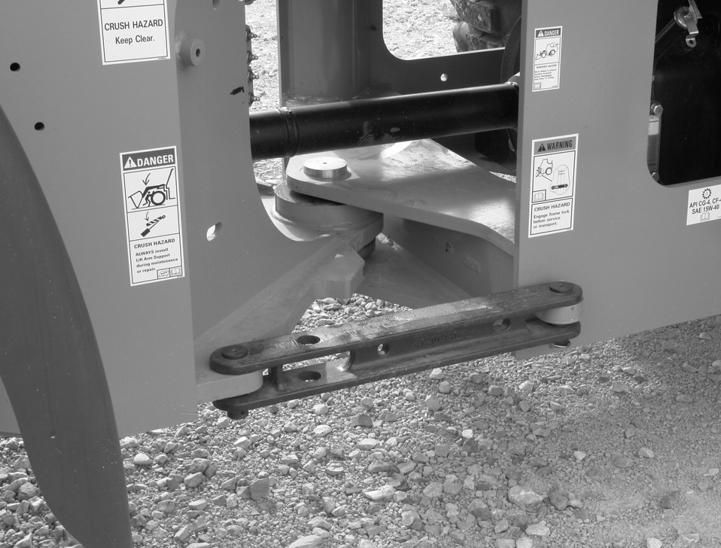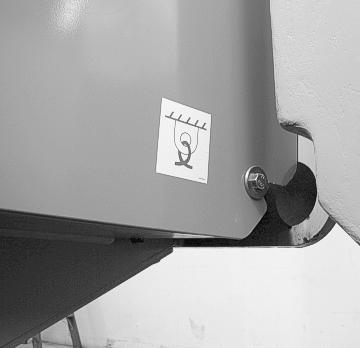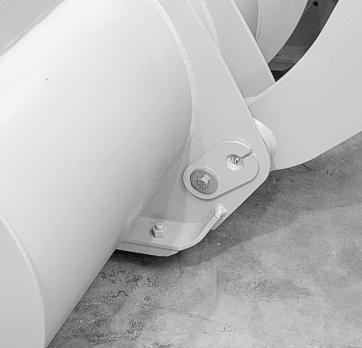
2 minute read
LUBRICATION/FILTERS/FLUIDS ................................................................ 113 SERVICING INSTRUCTIONS
Transporting the machine on a trailer
Machine tie down locations
BD01E126 BD06G099

CHAINS MUST BE SECURELY FASTENED TO THE FRONT LEFT AND RIGHT TIE DOWN HOLES.

BD00M032
CHAINS MUST BE SECURELY FASTENED TO THE LEFT AND RIGHT REAR TIE DOWN HOLES. TRANSPORT LOCK MUST BE SECURED.

BD00B012
CHAINS MUST BE SECURELY FASTENED AROUND THE LEFT AND RIGHT SIDES OF THE LOADER ARM. TRIM THIS EDGE
107
TRIM THIS EDGE
RIGHT PAGE
TRIM THIS EDGE
Operating the machine on sloping ground
WARNING: Hillside operations can be dangerous. Rain, snow, ice, loose gravel, soft ground, etc. modify terrain conditions. It is up to you to decide if the machine can be used safely.
CE-NA000
During hillside operations, be extra careful. Make sure that the low speed travel is selected. Always travel in the same direction as the slope, to prevent the machine from turning over.
Operating the machine in water
1.Make sure that the bottom of the stream, or water in which you will work, can support the weight of the machine. 2.Do not allow the water level to reach the top of the axles. IMPORTANT: DO NOT OPERATE in a fast flowing stream. 3.Before using the machine in water, inject large quantities of fresh grease into the appropriate grease fittings. 4.After completing the operation make sure to inject fresh quantities of grease into any fitting that was in water.
Machine storage
Preparation for storage
The following procedure applies when the machine is to be stored for a month or more. Store the machine on flat, level ground, inside a building. If a building is not available, park the machine in a dry area on planks and use wheel chocks, front and rear. Cover the machine with a waterproof covering. Before storing the machine, carry out the following operations: 1.Clean the machine completely and lubricate all components equipped with grease fittings. 2.Drain the water from the cooling system.
If the system is filled with an antifreeze mixture, this operation is not necessary. 3.To avoid rust, it is necessary to refill the fuel tank completely. 4.Remove the injectors and inject, through the injector holes, some engine oil (the operation should be performed using a syringe, after moving each piston to
B.D.C.). 5.Crank the engine a few turns to spread a protective film on the cylinder walls.
Reinstall the injectors. 6.If possible, store the batteries in a place where there is no danger of freezing.
Recharge them monthly. 7.To ensure adequate protection of the transmission components, at least once a month, the machine should be moved for short distances, so that a film of oil is renewed on the parts. 8.Place a DO NOT OPERATE tag on the key switch or steering wheel.
108
TRIM THIS EDGE
LEFT PAGE


